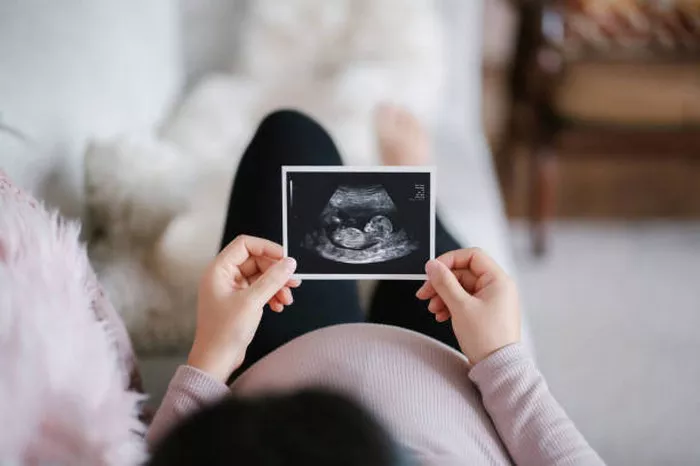Early pregnancy detection is crucial for women who are trying to conceive or suspect they might be pregnant. With advancements in technology, various methods are available to confirm pregnancy, each with its own advantages and limitations. This article explores the best tests for early pregnancy, including home pregnancy tests, blood tests, and their respective efficacy, timing, and considerations.
Understanding Early Pregnancy Testing
Pregnancy testing works by detecting the presence of human chorionic gonadotropin (hCG), a hormone produced shortly after a fertilized egg implants in the uterus. The timing of the test is essential, as hCG levels vary throughout early pregnancy and are most detectable after a missed period.
Types of Pregnancy Tests
Home Pregnancy Tests (HPTs):
Description: Home pregnancy tests are over-the-counter kits that can be purchased at pharmacies or supermarkets. They are designed for self-administration and typically involve urinating on a test stick or placing urine in a test cup.
How They Work: HPTs use antibodies that react with hCG. If hCG is present in the urine, a visible line or symbol will indicate a positive result.
Sensitivity: Most home tests can detect hCG levels as low as 20-25 mIU/mL, making them effective for use around the time of a missed period.
Blood Tests:
Description: Blood tests for pregnancy are conducted in a medical laboratory. There are two types of blood tests: qualitative and quantitative.
Qualitative hCG Test: This test checks for the presence of hCG and provides a simple yes or no answer regarding pregnancy.
Quantitative hCG Test (Beta hCG): This test measures the exact amount of hCG in the blood and can detect lower levels than urine tests.
Timing: Blood tests can detect pregnancy earlier than home tests, often as soon as 6-8 days after ovulation.
Comparing Home Pregnancy Tests and Blood Tests
Timing of Detection
Home Pregnancy Tests: Most sensitive tests can detect pregnancy about one week after a missed period, which is typically around 14 days post-ovulation. However, for the most accurate results, testing a few days after the missed period is recommended.
Blood Tests: Blood tests can detect pregnancy earlier, often within 6-8 days after conception. This makes them a preferred choice for women who want to confirm pregnancy as soon as possible.
Accuracy and Reliability
Home Pregnancy Tests: When used correctly, HPTs are approximately 97% accurate. Factors that can affect accuracy include:
- Testing too early
- Improper testing technique
- Diluted urine (testing after drinking large amounts of fluid)
Blood Tests: Blood tests are more accurate than home tests, especially the quantitative tests, which can provide precise hCG levels. They are less likely to yield false negatives, particularly in very early pregnancy.
Convenience and Accessibility
Home Pregnancy Tests: HPTs are easily accessible and can be taken in the privacy of one’s home. They are convenient for women who prefer to test without a medical appointment.
Blood Tests: Blood tests require a visit to a healthcare provider or laboratory, which may be less convenient for some women. However, they may be necessary for women experiencing complications or seeking early confirmation.
Cost
Home Pregnancy Tests: HPTs are relatively inexpensive, typically ranging from $10 to $20 per kit. Most women can afford to purchase multiple tests if needed.
Blood Tests: Blood tests are more expensive and may be covered by health insurance, depending on the provider and the circumstances of the test. Out-of-pocket costs can vary widely.
When to Take a Pregnancy Test
The timing of the test is crucial for accurate results. Here are some guidelines:
Before a Missed Period: If a woman is trying to conceive and wants to test early, it is advisable to wait until at least one week after ovulation for the most accurate results. Some sensitive tests may allow testing a few days before a missed period, but the accuracy may be lower.
After a Missed Period: For the most reliable results, testing should be done after a missed period. At this point, hCG levels are typically high enough to be detected by both home tests and blood tests.
Factors Influencing Test Results
Several factors can influence the accuracy of pregnancy tests, including:
Timing of Ovulation: If a woman has irregular cycles or ovulates later than expected, it may affect when to take a test.
Dilution of Urine: Testing after consuming large amounts of fluids can dilute urine and potentially lead to false negatives.
Medications: Some medications, particularly those containing hCG, can interfere with test results. Women should inform their healthcare provider about any medications they are taking.
Special Considerations
For women with certain medical conditions or those undergoing fertility treatments, additional considerations may apply:
Ectopic Pregnancy: If a woman has a history of ectopic pregnancy, it is essential to consult a healthcare provider early in the pregnancy for monitoring and testing.
Multiple Pregnancies: Women carrying multiples may have higher hCG levels, which can lead to earlier and more pronounced pregnancy symptoms.
Previous Pregnancy Complications: Women with a history of pregnancy complications should seek early testing and monitoring.
Conclusion
Choosing the best test for early pregnancy detection depends on individual circumstances, preferences, and the need for timely confirmation. Home pregnancy tests are convenient and effective for most women, particularly when used after a missed period. However, blood tests provide earlier detection and more accurate results, making them ideal for those seeking confirmation as soon as possible or those with specific medical considerations.
Regardless of the method chosen, it is essential for women to follow up with a healthcare provider after a positive test to confirm the pregnancy and begin appropriate prenatal care. Early detection and monitoring can lead to healthier outcomes for both mother and baby, making it a critical step in the pregnancy journey.
Related Topics:
- When Should I Start Using A Yoga Ball In Pregnancy?
- What Causes Pregnancy?
- What Does Pregnancy Lead To?


